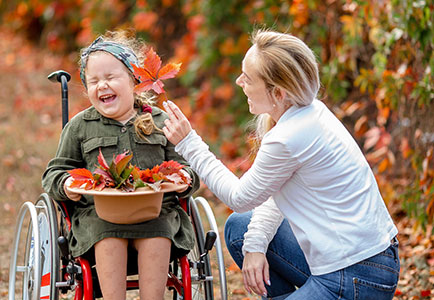Lessons learnt: Building back better from COVID-19

Over the past year and a half, the COVID-19 pandemic has affected every household in the world, causing significant economic and social disruptions and challenging our approach to public health and social care.
The rare disease community was particularly affected. People living with a rare disease have been caught in the collateral damage of the pandemic: essential treatment and care severely disrupted for 84% of people living with a rare disease in Europe. At the same time, 3 in 10 found these interruptions to be life-threatening. Everyone in our community has felt this extra vulnerability, this need for extra support, and, too often, this extra physical or mental suffering.
Today, as the world is slowly learning to live with COVID-19, with the vaccine increasingly available across countries and regions, we ask ourselves: would we be where we are now without contributions from the rare disease community? And more importantly: where do we go from here?
Rare disease research & best practices in addressing COVID-19
The development of vaccines against COVID-19 in less than a year is a triumph of science. However, it has gone mostly unnoticed that the design of RNA vaccines, such as the Pfizer vaccine, owes a lot to innovation in gene editing – techniques developed and refined with the aim to find cures for rare diseases, 72% of which are genetic. Several decades of extensive translational research on cancer and rare genetic conditions allowed the coronavirus genetic code to be altered to elicit an immune response providing protection against COVID-19.
The experience with the European Reference Networks on rare diseases, on the other hand, has prompted the European Commission to launch the COVID-19 Clinical Management Support System to support healthcare professionals dealing with COVID-19 cases across Europe. The initiative has helped create rapid connections among healthcare professionals and hospitals across Europe to share data and improve the management of COVID-19 cases.
Lessons learnt from COVID-19 as we build back better
Finding treatments for COVID-19 requires strong global cooperation and solidarity. The same is true for rare diseases. The pandemic has shown that EU procurement for treatments is realistic.
“A European Union joint procurement system for rare diseases is not only favourable but now also feasible. There is already an established care infrastructure to facilitate the diagnosis, care and treatment of rare diseases through the European Reference Networks. The disease registry systems that are being set up can collate data and examine the impact of new therapies on a European basis, and create a continuum of evidence generation to regularly assess the realisation of a therapy’s potential.”
– Simone Boselli, EURORDIS-Rare Diseases Europe Public Affairs Director.
The COVID-19 pandemic has also shown how we can improve care coordination and develop impactful, patient-centred care pathways. For example, telehealth helps keep people safe during the pandemic and expands access to care for people in areas with few health care providers. Findings show that 90% of people living with a rare disease who participated in online consultations regarded the telemedicine solution as useful to manage their condition. We have a unique opportunity to design and implement solutions in policy environments that address the needs of all people, including those living with a rare disease.
A rare opportunity for change
Coordinated actions at the European and global level are essential to address current and emerging challenges and build more resilient health and social care systems to ensure the health and well-being of people living with a rare disease in Europe and beyond.
We are calling upon EU policy makers to introduce a European action plan on rare diseases to address the vast unmet needs and inequalities experienced by people living with rare diseases, to improve the quality of life of people living with a rare disease, and ensure Europe is a global leader in rare disease innovation.
At the global level, EURORDIS, together with Rare Diseases International and the NGO Committee for Rare Diseases, urges the United Nations to adopt a UN General Assembly Resolution to recognise the complex challenges faced by people living with a rare disease and their families worldwide and promote their full participation and inclusion in society.
If adopted, both policy initiatives would empower and support people with rare diseases and help guide national plans and strategies across the world.
Throughout the COVID-19 pandemic, the rare disease community, with its expertise and experience in capacity building and medicine development, has proven to be a valuable partner in finding solutions to the various healthcare and public health challenges. Now is the time to put lessons learnt into practice and use them to drive change. Learn how you can help move the rare disease agenda forward at the European and global level.
Stanislav Ostapenko, Communications Manager, EURORDIS
Traducteur : Trado Verso
Übersetzer: Peggy Strachan
Traductor: Conchi Casas Jorde
Traduttrice: Roberta Ruotolo
Tradutores: Ana Cláudia Jorge e Victor Ferreira
Перевод: Talkbridge
